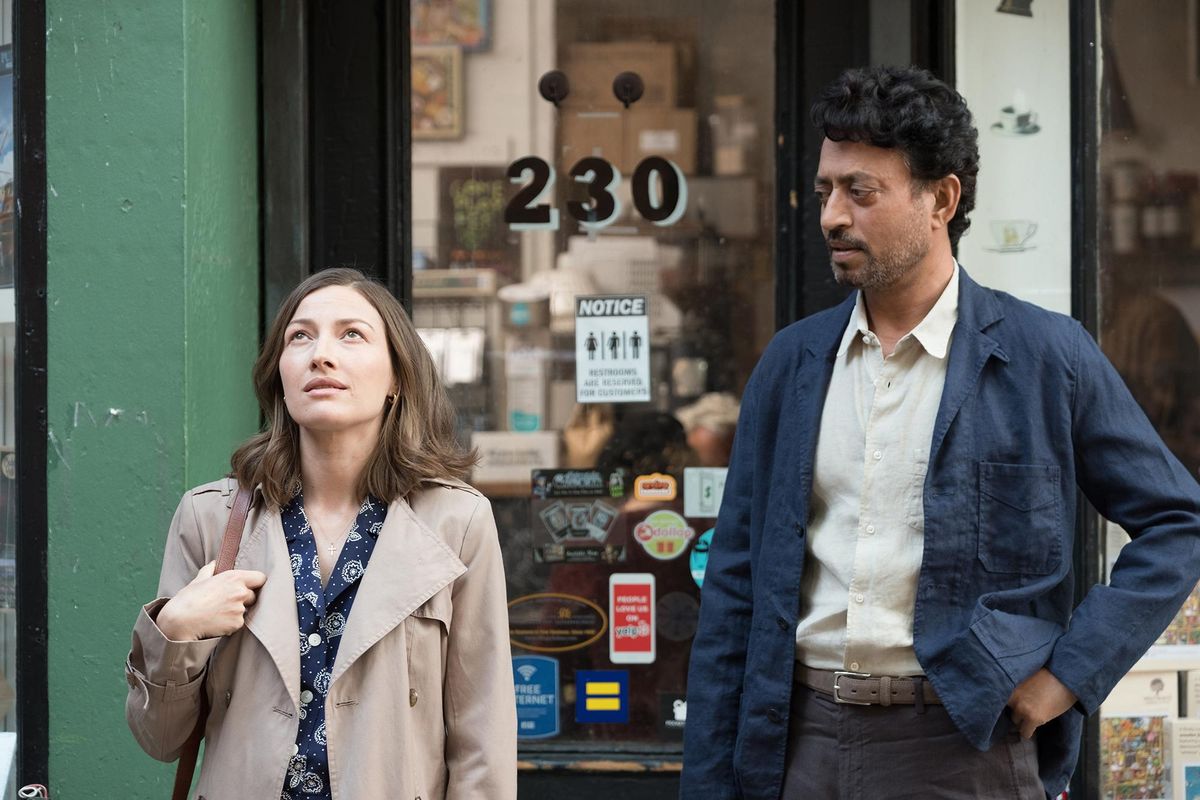Review: ‘Puzzle’ is the competitive jigsaw puzzle drama you’ve been waiting for

Since making her big-screen debut 20-odd years ago in “Trainspotting,” the Scottish actress Kelly Macdonald has made a specialty of stealing movies in supporting roles.
She was devastating as the trusting wife in “No Country for Old Men” and perfectly cast as the stoic domestic goddess Dolly in Joe Wright’s dreamy adaptation of “Anna Karenina.” In the HBO series “Boardwalk Empire,” Macdonald didn’t so much revert to type as the naive woman in distress as infuse the trope with equal parts soul and steel.
In “Puzzle,” Macdonald has finally found a movie that she doesn’t need to steal, because it belongs to her completely. As Agnes, a Connecticut homemaker longing to break out of a comfortable but humdrum existence, Macdonald brings her characteristic quiet radiance to bear on creating a character who’s either on the brink of crisis or of rebirth, depending on how she makes the pieces fit.
We meet Agnes in a magnificent opening sequence, as she silently vacuums her house, prepares for a party, hangs a “Happy Birthday” banner and greets the guests. The sequence delivers two major reveals that take the audience unaware but speak volumes about Macdonald’s character: in many ways, she’s a creature stuck in time, and her Catholic conscience has taken self-abnegation to a potentially tragic extreme.
“Puzzle” is based on a 2010 Argentine film in which another thwarted wife and mother discovers a latent talent for putting together jigsaw puzzles. As in that film, Agnes winds up joining forces with an idiosyncratic man to enter a tournament.
But director Marc Turtletaub, working from a script by Polly Mann and Oren Moverman, engages in another clever misdirect. Rather than a conventional underdogs-in-competition drama, “Puzzle” underplays the familiar tropes of stopwatches and we-can-do-this speeches. Instead, Turtletaub and Macdonald create a delicate, affecting portrait of a woman finally expressing long-repressed dissatisfaction and desire – or, to borrow the symbolic language of a film that pointedly takes place during Lent, a woman resurrecting a long-buried self.
Although “Puzzle” wholly belongs to Macdonald – who fills each scene with watchful attention and sly humor – it owes much to the actors who play the men in Agnes’s life: Her husband, Louie, an auto-body mechanic steeped in the traditions of their Hungarian-American community, could easily be portrayed as a sexist oaf. But David Denman imbues him with undeniable sweetness. This is an imperfect marriage, but a fundamentally loving one, an emotional tone echoed and reinforced by Dustin O’Halloran’s lyrical, unobtrusive musical score.
For his part, Irrfan Khan has seductive fun as Agnes’s puzzle partner, who lives in a New York townhouse that is somehow opulent and barren at the same time. (Turtletaub has done a similarly astute job of casting Agnes’ young-adult sons, played to perfection by Austin Abrams and Bubba Weiler.)
It’s not fair to oversell “Puzzle.” It’s a modest, tender movie in which not much happens, aside from a woman transforming in small but seismic ways. For fans of Macdonald who have long awaited the movie she owns from start to finish, it’s nothing less than a simple, humane and tenderhearted triumph.